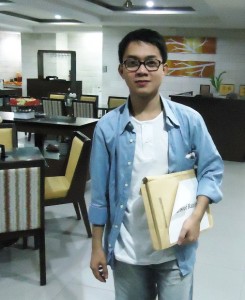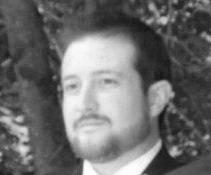MTC Cronin
MTC Cronin has published eighteen books (poetry, prose poems and essays) including a collection jointly written with the Australian poet Peter Boyle. Several of her books have appeared in translation including her 2001 book, Talking to Neruda’s Questions, which has been translated into Spanish, Italian and Swedish. Early 2009 saw the publication of Squeezing Desire Through a Sieve ~ Micro-Essays on Judgement & Justice (Puncher & Wattmann, Sydney) and Irrigations (of the Human Heart) ~ Fictional Essays on the Poetics of Living, Art & Love (Ravenna Press, USA). Her work has won and been shortlisted for many major literary awards, both internationally and in her native Australia. Cronin has studied arts, law, literature and creative writing and after working for the decade of the nineties in law, began teaching writing in primary, secondary and tertiary institutions. She currently lives, with her partner and three daughters, on a biodynamic farm in Conondale in the Sunshine Coast Hinterland of Queensland. Her latest poetry collection, The World Last Night [Metaphors for Death], was published in late 2012 by University of Queensland Press. A new collection – The Law of Poetry – is forthcoming through Puncher & Wattmann.
Lesson
Every day, crucify what you know.
Watch the stone practising what it knows
of bulls and men.
When the dream begins to fall, don’t catch it.
Console the words which have lost other words.
Learn how to wholly speak
for the voice that speaks in shards`
but hints at love.
Move! And then move again!
The distance from your mother’s womb
is measured by adding what is now clear
to a bowl of yellow peaches.
Show me something perfect!
Learn the inside of your heart.
Be shaken by infinity awake.
Break poison like bread.
History Lesson
The cradle of history
is filled with rocks
which were all gathered yesterday.
The tomb of history
is surrounded by mourners whispering
in the ears of tomorrow.
Just what happened is nowhere.

 Nathan Curnow lives in Ballarat and is a past editor of Going Down Swinging. His work features in Best Australian Poems 2008, 2010 and 2013 (Black Inc) and has won a number of awards including the Josephine Ulrick Poetry Prize. His most recent collection, RADAR, is available through
Nathan Curnow lives in Ballarat and is a past editor of Going Down Swinging. His work features in Best Australian Poems 2008, 2010 and 2013 (Black Inc) and has won a number of awards including the Josephine Ulrick Poetry Prize. His most recent collection, RADAR, is available through 
 Toby Davidson is a West Australian poet, editor and reviewer now living in Sydney where he is an Australian Literature researcher at Macquarie University. He is the editor of Francis Webb Collected Poems (UWA Publishing ) and author of the critical study Christian Mysticism and Australian Poetry (Cambria Press). His debut poetry collection is Beast Language (Five Islands Press).
Toby Davidson is a West Australian poet, editor and reviewer now living in Sydney where he is an Australian Literature researcher at Macquarie University. He is the editor of Francis Webb Collected Poems (UWA Publishing ) and author of the critical study Christian Mysticism and Australian Poetry (Cambria Press). His debut poetry collection is Beast Language (Five Islands Press). Ron Pretty’s eighth book of poetry, What the Afternoon Knows, was published in 2013. An updated edition of Creating Poetry will be published later this year. He spent six months in Rome in 2012, on a residency granted by the Australia Council.
Ron Pretty’s eighth book of poetry, What the Afternoon Knows, was published in 2013. An updated edition of Creating Poetry will be published later this year. He spent six months in Rome in 2012, on a residency granted by the Australia Council. William Byrne is a South Australian poet in his twenties. He has always lived in rural and coastal townships, excluding an urban interlude for university study for degrees in architecture and design.
William Byrne is a South Australian poet in his twenties. He has always lived in rural and coastal townships, excluding an urban interlude for university study for degrees in architecture and design. Hazel Smith is a research professor in the Writing and Society Research Centre at the University of Western Sydney. She is author of The Writing Experiment: strategies for innovative creative writing, Allen and Unwin, 2005 and Hyperscapes in the Poetry of Frank O’Hara: difference, homosexuality, topography, Liverpool University Press, 2000. She is co-author of Improvisation, Hypermedia And The Arts Since 1945, Harwood Academic, 1997 and co-editor with Roger Dean of Practice-led Research, Research-led Practice in the Creative Arts, Edinburgh University Press, 2009. She is co-editor with Roger Dean of soundsRite, a journal of new media writing and sound, based at the University of Western Sydney.
Hazel Smith is a research professor in the Writing and Society Research Centre at the University of Western Sydney. She is author of The Writing Experiment: strategies for innovative creative writing, Allen and Unwin, 2005 and Hyperscapes in the Poetry of Frank O’Hara: difference, homosexuality, topography, Liverpool University Press, 2000. She is co-author of Improvisation, Hypermedia And The Arts Since 1945, Harwood Academic, 1997 and co-editor with Roger Dean of Practice-led Research, Research-led Practice in the Creative Arts, Edinburgh University Press, 2009. She is co-editor with Roger Dean of soundsRite, a journal of new media writing and sound, based at the University of Western Sydney.